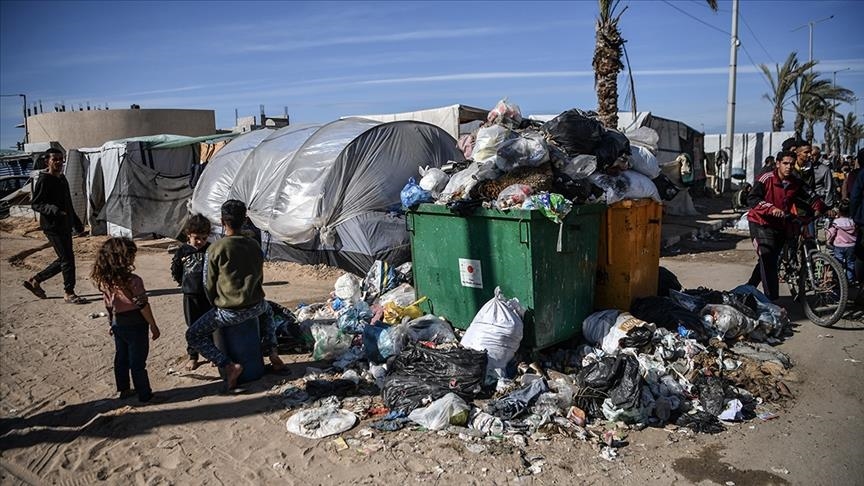AhlulBayt News Agency: UNRWA said on Tuesday that nearly 40,000 cases of hepatitis had been recorded in Gaza since the start of the Israeli war on October 7, 2023.
“According to data from UNRWA’s health program, 800 to 1,000 new hepatitis cases are reported weekly from UNRWA health centers and shelters across Gaza. Cases of Hepatitis A increased from only 85 cases reported before the war to nearly 40,000 cases reported since the war started,” the agency stated in a report.
“More children in Gaza are at risk of contracting Hepatitis A. This is due to massive displacement of people, overcrowded shelters, lack of clean water, soap, and other hygiene supplies,” UNRWA warned.
“10 months on this brutal conflict, very heavy restrictions on humanitarian access, lack of adequate medical care and prevention measures have created the perfect recipe for diseases including Hepatitis A to spread in the Gaza Strip, especially among children in overcrowded shelters,” UNRWA added.
“Since the start of the Israeli forces’ military operation in Rafah on May 6, it has become increasingly challenging to bring in basic supplies. Meanwhile, Hepatitis A continues to spread, including in UNRWA shelters,” the agency pointed out.
UNRWA said it responded with diagnosis, awareness raising, and counseling because there is no specific treatment for Hepatitis A.
“The Hepatitis A outbreak is spreading in Gaza during the war. Families are displaced and live in dire and inhuman conditions in overcrowded camps and shelters. They lack clean water, hygiene kits, and proper waste and sewage management,” Ghada al-Jadba, chief of UNRWA’s health program in Gaza, said.
“This crisis continues to make it extremely hard for UNRWA’s health program to respond to the needs of the sick,” she added.
/129
“According to data from UNRWA’s health program, 800 to 1,000 new hepatitis cases are reported weekly from UNRWA health centers and shelters across Gaza. Cases of Hepatitis A increased from only 85 cases reported before the war to nearly 40,000 cases reported since the war started,” the agency stated in a report.
“More children in Gaza are at risk of contracting Hepatitis A. This is due to massive displacement of people, overcrowded shelters, lack of clean water, soap, and other hygiene supplies,” UNRWA warned.
“10 months on this brutal conflict, very heavy restrictions on humanitarian access, lack of adequate medical care and prevention measures have created the perfect recipe for diseases including Hepatitis A to spread in the Gaza Strip, especially among children in overcrowded shelters,” UNRWA added.
“Since the start of the Israeli forces’ military operation in Rafah on May 6, it has become increasingly challenging to bring in basic supplies. Meanwhile, Hepatitis A continues to spread, including in UNRWA shelters,” the agency pointed out.
UNRWA said it responded with diagnosis, awareness raising, and counseling because there is no specific treatment for Hepatitis A.
“The Hepatitis A outbreak is spreading in Gaza during the war. Families are displaced and live in dire and inhuman conditions in overcrowded camps and shelters. They lack clean water, hygiene kits, and proper waste and sewage management,” Ghada al-Jadba, chief of UNRWA’s health program in Gaza, said.
“This crisis continues to make it extremely hard for UNRWA’s health program to respond to the needs of the sick,” she added.
/129

